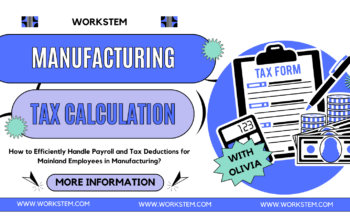Nowadays, working hours are more flexible than compared to the past. Even if an employee is late occasionally, it may not because of concern for employers. As long as employees perform positively at work, employers can be more forgiving of various reasons for being late. For example, employers these days have no incentive to punish employees who are only occasionally late and give valid reasons such as their car breaking down or feeling ill in the morning.
Of course, employers will still want to know why employees are late. Certain, flimsy excuses—such as being stopped by a salesperson on the street or being absorbed on their phone and failing to notice the time or his/her cat was trapped in the bathroom—just won’t do.
Employees also know to give good excuses, ones that show they are late because of external factors out of their control. The subtext here is: it wasn’t my fault I’m late, so please don’t deduct my salary!
However, different companies have different policies on tardiness. There are still some employers who put a strict premium on time management and deduct employee’s salaries when they are late.
Under Hong Kong’s Employment Ordinance, an employer can deduct wages from their employee if they are absent from work. The sum to be deducted should be proportionate to the period of time the employee is absent from work:
- In the case of a contract employment where wages are calculated on the basis of time (example: X dollars per hour), dedications shouldn’t be more than equal to the time missed. For example, if an employee is paid $15 an hour and they missed two hours of work, the deduction should not exceed $30.
- No dedication shall be made for the purpose of defraying or partly defraying the cost of holiday pay or sick pay.
Some employers will equate tardiness with outright absence. However, section 32 (2) of the EO, Chapter 57 of the Laws of Hong Kong states that deductible wages do not cover employee tardiness. Employees can even refer to the case of Mr. Mak salary deduction case as a legal precedent (No. HCLA 42/2000).
Note: An employer who makes illegal deduction from wages of an employee is liable to prosecution and, upon conviction, to a fine of HK$100,000 and up to one year’s imprisonment.
In conclusion, employers shouldn’t equate tardiness with absence and/or deduct more than the legal amount in wages. Under Chapter 9 of the Employment Ordinance, however, employers are well within their right to dismiss an employee that’s always tardy and habitually neglectful in their duties.
If an employer wants to efficiently monitor employee attendance, Workstem presents an easy and efficient solution. The App allows employees to easily clock-in/clock-out and supervisors can even use App to check at a glance at employee attendance records.The Workstem system can provides a full range of solutions to help your business management of other HR processes, such as Rostering、Attendance、Leave, MPF and tax return management, etc., help you can truly realize digital transformation and improve management efficiency and employee satisfaction.
Read More:
Do Employees Have Paid Sick Leave During Probation?
How to Legally Terminate Employees When the Business is Slumping?







